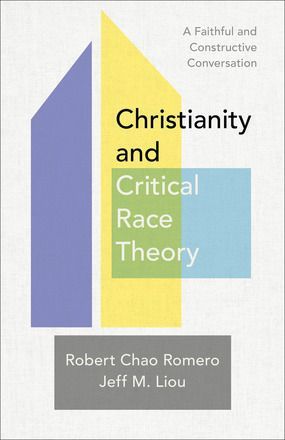Questions on the Trinity, Part 2
Josh Cramer • July 19, 2023
Some more thoughts on the Trinity

I apologize. This post got too long, so I've split it into two parts. Too many interesting and fun questions! Thanks for that! Here in part 2, I have three main questions: (1) looks at the Trinity and Heaven, (2) deals with the Trinity and Jesus' self-emptying, and (3) explores the questions of gender in the Trinity. In part 1, we looked at the the language of Trinity, the Spirit, and the relationships between persons of the Trinity. Thanks again for your questions!
What an interesting question. I like the thought. I vote yes, that the Trinity can and should shape and form our pondering of heaven. Let’s explore together how that might be. And I’m really just wondering with you here—this isn’t something I’ve studied specifically—so I’ll walk through a few ways we might think about this, and then let you pick up the threads.
One note: “heaven” is a really broad topic, and there are lots of different ways that we talk about heaven: our experience of the world as within “the heavens”, heaven and earth as distinct but connected within creation, “heaven” as the place we go when we die, heaven and earth coming together for eternity, etc. I’m hoping to hold all of these together in my head as I answer, but I may confuse myself. I apologize if I confuse you, too.
(a) The first thing that comes to mind is the connection between heaven and earth. My intuition is that the final destiny of heaven and earth will mirror in some important ways the unity of God and humanity in Jesus. For now, we know from Scripture that heaven is all around us, that God is constantly speaking to us, that the divine is regularly breaking through our senses, that the Spirit is always moving and leading and hovering; but, in eternity, heaven and earth will be fully united and fully apparent, as God’s presence is clear to us in Jesus after the resurrection. After the resurrection, Jesus made it seem like heaven was already here, within our arms’ length, like we could just reach out and touch it. It is! And in eternity, heaven and earth will be fully united, so that “heaven” will not be separated from “earth”, but they will be one and the same, the way that Jesus unites God and humanity. Heaven won’t be something we reach out and touch, but a place into which we are fully integrated. In the same way, the persons of the Trinity won’t be elusive, or beyond our sight. Revelation indicates to us that “there is no more sun because God is the light”—God will be the light by which we see. Whatever the physics of light are in the New Creation (that’s another conversation…) God will be the source of light (we might put the Father in this role), the radiant one who walks with us (maybe the Son), and the light particles by which we see and experience the New Heavens and New Earth (the Spirit). I feel like we are already deep into speculation, so I’ll stop there, but let me try to sum up this thread: I suspect that the persons of the Trinity will fulfill and consummate the promise of earth as we experience it now in history, so that in the New Creation heaven and earth will be united as we will be united with the persons of the Trinity.
(b) A second thread we might consider is what thinking about the Trinity might teach us about the way heaven operates. An unnecessarily academic title to this section might be something like, “The Politics of Heaven, According to the Doctrine of the Trinity”. Actually, I like that; I’m sticking with it. So, what might the Trinity tell us about the politics of heaven? Well, first, it’s a monarchy. God is King. All authority rests in God. And maybe in God the Father. But, the Father has set the Son above everything. And the Father and Son glorify the Spirit while the Spirit glorifies the Son and Father. Each person is an individual self, while also being fully united with and seeking the glory of the others. So, all authority rests in the Father, but the Father gives that authority to the Son, who gives that authority to the Spirit, who gives glory and authority to the Son, who gives glory and authority to the Father, on and on forever. It’s like a shared kingship. And, we who are in Christ are invited into the intimacy and authority. There’s a sense in which the New Creation, where the People of the Lamb will rule with the Lamb, will be something we might call a “participatory monarchy”. We will participate in God’s rule of the New Heavens and New Earth. We won’t grasp for it; God will willingly give us authority and we will use it well and in ways that give glory to God. Because that’s how the Trinity operates.
(c) A third angle to ponder: how might we relate to the persons of the Trinity in heaven? The short answer is intimacy and love. The persons of the Trinity love one another. In fact, their love for one another defines what God is: God is Love. And in the New Creation, the Lamb (the Son) marries his faithful bride. We will enter into the fulfillment of intimacy and love with the persons of the Trinity.
In short, the Trinity teaches us that God’s purpose for creation is to unite heaven and earth, God and humanity, and to include humanity in the work of the Triune God: to rule creation with love and grace, to God’s glory. Thoughts? Does that start to give some ways of thinking about this question? Am I understanding this question as you intended it? What other thoughts have you had?
2. How does the Trinity relate to the “emptying” (kenosis) we read about in Philippians 2.
Unlike the previous question, this is something I’ve thought some about. So, bear with me. Short answer: I’m confident that when Jesus empties himself, the rest of the Trinity is being revealed and made present to the world. Self-emptying, humility, self-sacrifice for others—these are the ways that God enters into the world, they are God’s glory.
I’ve heard Philippians 2 used to say a couple different things about Jesus’ relationship to his divinity. Some teachers have said that Jesus emptied himself of his divinity, and so all the miracles he did are available to us also—he was just relying on the Holy Spirit in the same way that we can and was basically just human when he walked among us. Other teachers have said that Jesus emptied himself of his divinity and was separated from the Father while on the cross. His self-emptying actually created distance between persons of the Trinity.
I don’t think Paul is saying either of those things. I’ve hinted at this in other places on the blog, and I don’t mind going there again: I think Paul is arguing that Jesus emptied himself as a way of showing us what God is like. God is a self-emptying kind of God. So, when Jesus came to earth as a human, a servant, a criminal, a condemned criminal, he was making God uniquely present to us. When he died on the cross, God was powerfully there at the cross and in his death. The signs and wonders that occurred at his death (darkness, earthquake, dead people walking out of their tombs) are all indications of God’s power being unleashed. The tearing of the curtain in the Temple is a sign that God will not be contained in the Holy of Holies anymore. The centurion’s statement—“surely this man was the son of God!”—gives further evidence that we should see Jesus’ self-emptying and death in precisely this way. God is making the Trinity powerfully present when Jesus empties himself.
That help? Other thoughts, or ways of thinking about the question? Would love to interact on this with you.
3. Why such a focus on the maleness in the Trinity? Especially if we are all created in the image of God?
Yeah, this is a really interesting question. There was a related question in the Q&A, and I gave some thoughts and then I asked the questioner whether I had responded to what she was asking, and she said no. So, I don’t take for granted that I am understanding this question well. Please come back to me if this response isn’t helpful. (And that reminds me that I would benefit and learn from sitting down and discussing more with the person who asked that question in person.)
Short answer to this question is “I don’t know”. I have pondered this some, but others are doing far more interesting work on this question right now. I can give some initial thoughts and then point to some other resources that are wrestling with this.
Slightly longer answer: We refer to the first and second persons of the Trinity with masculine pronouns and titles because Scripture does. So an obvious question is why does Scripture use masculine language? There are a few ways we could proceed.
First, we could chalk it up to the fact that Scripture was written by men from patriarchal cultures and leave it at that. That fact is certainly true. Men wrote most, if not all, of what we have as the Bible, and they were consistently writing from cultures where men dominated women. I have a couple of questions about leaving it there: that still begs the question of why God decided to communicate with humanity through men from patriarchal cultures; and, it doesn’t really account for the importance and value of women and feminine portrayals of God in the Bible. The portrayal of God is primarily masculine, but there are central moments when the Bible uses feminine imagery to talk about God. It’s not just that men wanted to maintain power by showing God to be masculine, or some version of that. Men writing from patriarchal cultures also regularly saw God as acting in ways that it seemed most accurate to describe in feminine language, and they saw women as acting as the most clear and faithful images of God in the world. That’s not the whole story, but it’s not unimportant.
Second, we could argue that there is something about the human metaphor of “Father” and “Son” that get at something true about God that other metaphors just don’t. Again, that puts us in the realm of language and culture—for instance, we could ask why the “father” metaphor carries the kinds of meanings that Christians have traditionally associated with God, and whether that is necessary and intrinsic to the word itself, or whether that is all culturally loaded language. I guess I would say that this is not fully convincing, but I find it worth pondering—both for what it might say about God and for what it might say about human culture. For instance, does it matter whether God is Father or Mother? What difference does that make in our understanding of who God is? Does it matter whether the Lamb is the Bridegroom or the Bride? Why or why not?
Third, we could look more closely at some of those portrayals of God as feminine and explore how those complicate our picture of God as masculine. How much do they actually reshape our picture? Is it enough that we want to change our language?
The overarching story of Scripture gives us some key places to build a foundation for our understanding of God and humanity and masculinity and femininity: all human beings are made in God’s image, male and female each image God in unique and wonderful ways, God transcends male and female, a man’s maleness and a woman’s femaleness are each fearfully and wonderfully made and show something about God to the world. A human father is not more Godlike for being called by the title “father” but a woman and a man each present a good and valuable image of godliness by existing (and then also by revealing the characteristics of godliness—like love, joy, peace, patience, kindness, goodness, faithfulness, gentleness, self-control).
Other people are exploring this question in interesting ways. Amy Peeler, in her new book Women and the Gender of God, challenges our assumptions about God’s maleness. Richard Briggs helpfully lays out the arguments around whether we should feel free to call God “Mother” as well as, or instead of, “Father” in an article for themelios
magazine. Mallory Wyckoff’s God Is
gives us a lot to think about and learn from when we are thinking about God. And the Catholic Church
(check out #239) has argued for centuries that God is not male or female, but transcends both. Check out these resources and others—but please hear that I am not endorsing all they say. These are just thoughtful people trying to wrestle deeply with big questions. Listen and learn, and then let the Holy Spirit guide your own thinking and practice.
Does that help? Other questions or thoughts? I’d love to ponder together with you!

This is how I remember Lent as a kid: go to mass on Ash Wednesday (I have no memory of any sermon, lol), vow to give up something (that lasted as long as a New Year’s resolution), and eat Long John Silver’s fried fish on Fridays (their hushpuppies and crunchies…mmmm). We didn’t eat meat on Fridays (unless we forgot, but we prayed, so it was ok); it was something everyone in the church did, right? I knew it was leading up to Easter--other than that, I had no real understanding or connection to it. Lent was taught more like an obligation rather than an opportunity. An opportunity to reflect, rejoice, rest, repent (what other “r” words can we think of?) on Christ’s journey to the cross. The next 40 days is an opportunity, an invitation to draw closer to the Giver of Life. For some, this might look sacrificial (giving something up), for others it might be a genesis (starting something new), or it can be a combination of the two. “Your kingdom come, Your will be done, On earth, As it is in heaven” Our Lord doesn’t just teach us to pray, he embodies prayer. He inaugurates God’s kingdom on earth through his presence with us; through his faithful obedience, we get to see and experience heaven on earth. This does not come without temptation, and trials, and wandering astray at times—yet our loving God invites. He invites us to remember, to reengage with the One who creates and holds all things; He invites us to lay down our lives and pick up our crosses. We want to invite you to participate with RCB, as we journey with Christ to Calvary, praying for the strength to be obedient… Your kingdom come, Your will be done, On earth, As it is in heaven.









